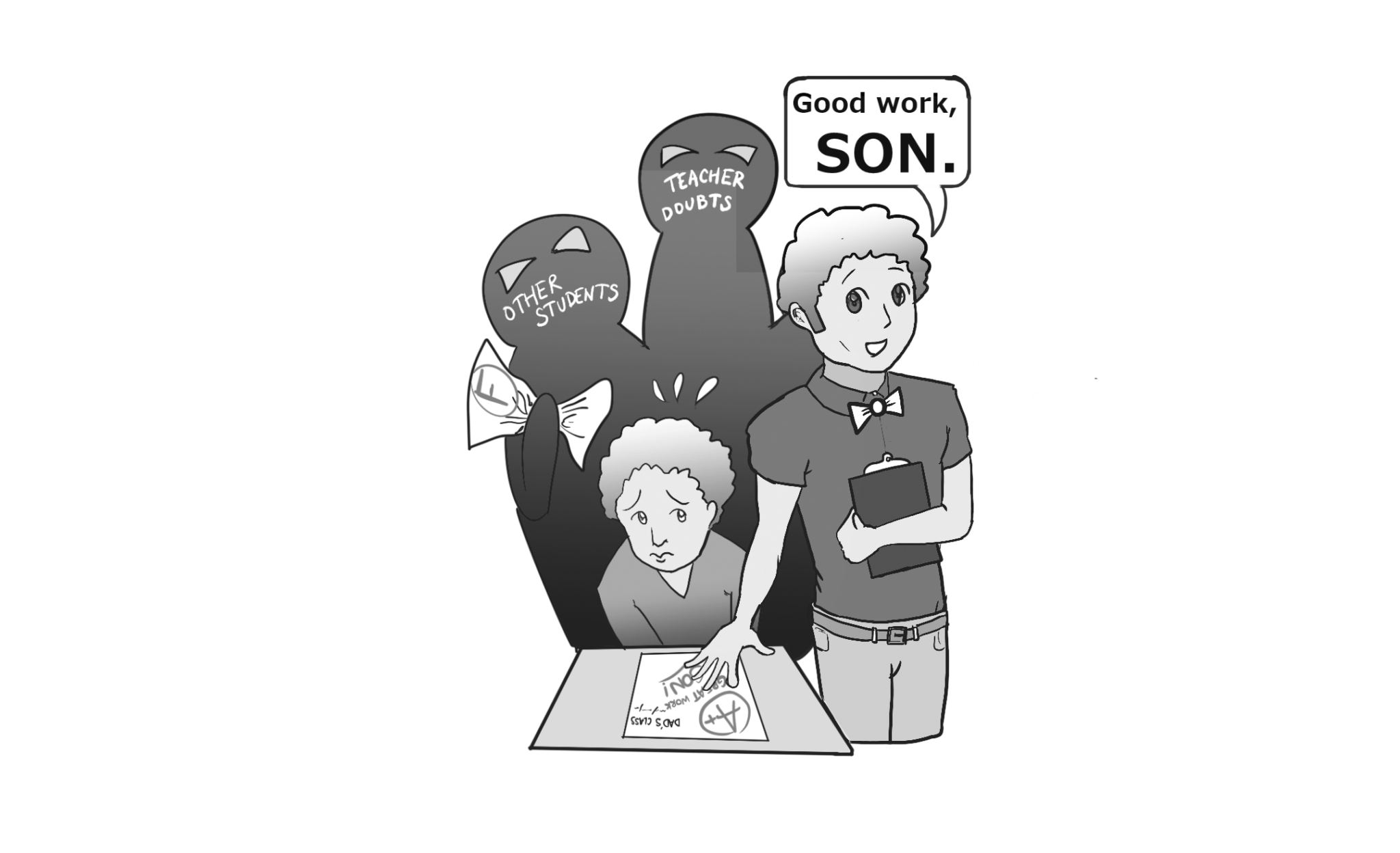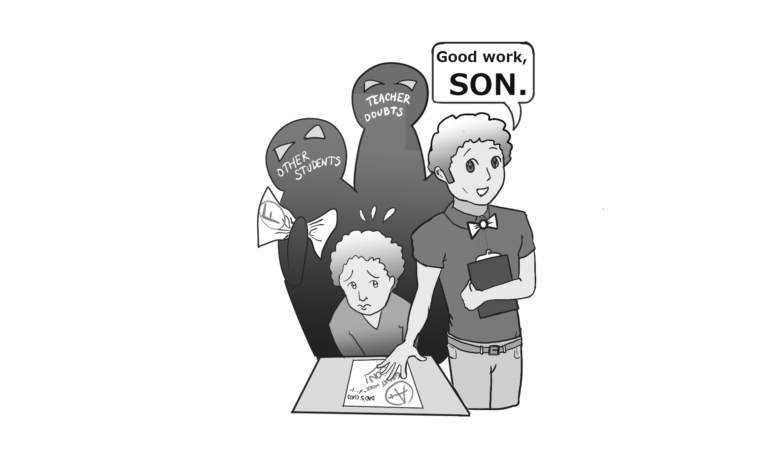

A few years ago, the district board created a policy where students were completely prohibited from taking courses taught by their parents. However, after a reevaluation of the policy last fall, the district board decided to make certain exceptions for special cases. For example, if a course was a non A-G course, or only taught by a single teacher within a school, then the exception would be made.
Previously, in the scenario of a course being taught by a student’s parent, the policy ensured that in no case would a student have a parent as a teacher.
“To ensure fairness toward all students … [should] a situation arise where a certificated employee has or will have a student enrolled at his/her work site, the schedules of the parent/guardian and student will be arranged to avoid assigning the student to the classroom of the parent/guardian,” the policy stated. “The Administration may … assign the teacher to teach different courses; transfer the teacher to another site; chang[e] the student’s class schedule; or allow the student to enroll for a course or course at another school.”
“It really wouldn’t make much sense to teach your own kid,” said English teacher Jim Daniel. “I have always known that I wouldn’t be able to teach my children … because it presents lots of challenges … If he’s being silly and goofy, I have to deal with that. Also, if my kid is extremely bright and he aces every test, then people are going to talk, saying that he got that because of his dad.”
However, after considering scenarios in which a course may only be taught by one teacher, or where the class is not an A-G requirement, the district decided to soften the standards.
“My understanding of the original intent was that no teacher, no matter what the course, should teach their own child,” said Vice Principal Ron Berggren. “The issue has been with specific classes … For most AP courses, there’s usually one AP teacher. Basically what you would be saying is that you would be excluded from taking those AP classes just because your parent would be the teacher … So the board made an adjustment, saying that if teachers teach singleton classes like that, then it would be ok.”
For example, prior to the implementation of the policy, according to junior Maria Sell, she was barred from taking Weight Training, since it was a course taught by her father. As of this semester, however, because of the policy revisions, she is now able to take it, as her father is the only instructor teaching that class.
“The class is very hands-off, and [my dad] grades on participation,” Maria Sell said. “If you are working hard, you get a good grade. It is not like a science or English class where he would be grading work. It is not like he’s my teacher, but an overseer of a lot of kids who are working out. He can’t be biased at all.”
Exceptions also included coaching and the scenario of a relative other than the parent teaching a student.
For example, junior Danny Navarrette is enrolled in a U.S. History class taught by his uncle, Jayson Estassi.
“No one really knows he’s really my uncle unless I tell them,” Navarrette said. “As far as for awkwardness, it’s really not that awkward [to have him as a teacher] … He tries not to show any special treatment.”
Overall, however, Navarrette sees the general policy that prohibits parents teaching their children as beneficial and fair.
“I think this is a really good policy, it’s hard not show bias to kids, already,” Navarrette said. “There’s already a lot of teachers who might favor particular students but they do a good job or not showing that … And further on in life … when you’re applying for college, they might say that you got a good grade in that class because the teacher is related to you.”
Junior Della Trimble has also had her mother, Annette Gennaro, as a coach in basketball and volleyball.
“When I was on her team for volleyball and basketball, I never felt that she wanted more out of me,” Trimble said. “These two sports are a team sport, not just one person can win the whole game. She wanted everyone to work hard and be the best they can be … I am not going to lie, it can get tough when you have a parent coach their child because people talk … but I loved having her be my coach.”
Athletic Director Steve Sell said that, despite new modifications, no policy will ever get rid of every potential conflict.
“I have had my nephew, my colleague’s kids [as] my own players,” he said. “One can argue that you could be biased towards them … You’re weighing the potential bias that might occur against students versus not being able to take classes that they want.”
